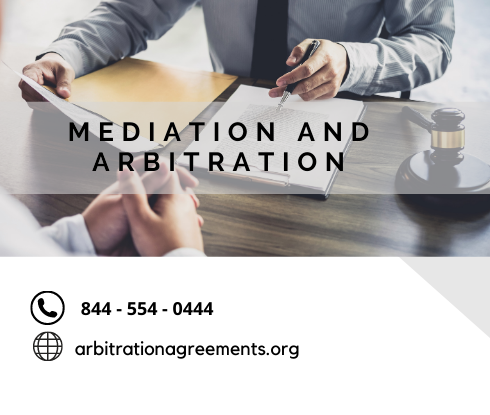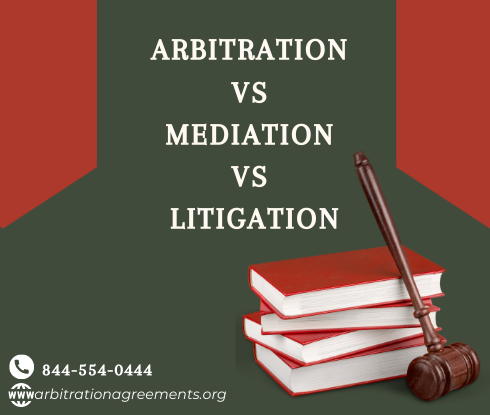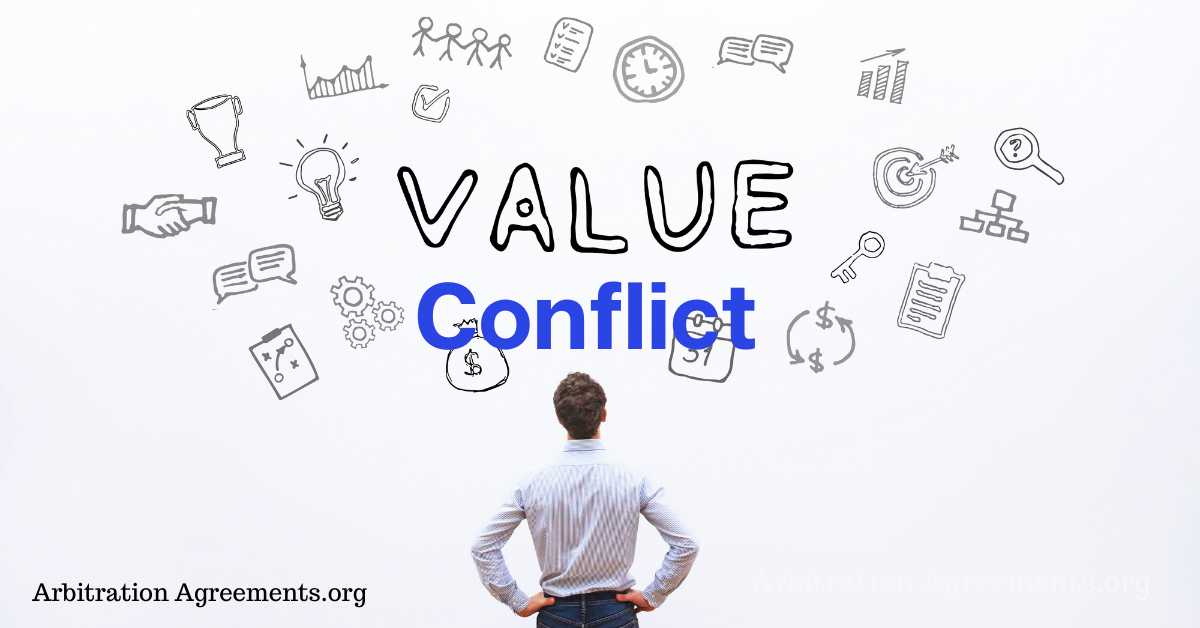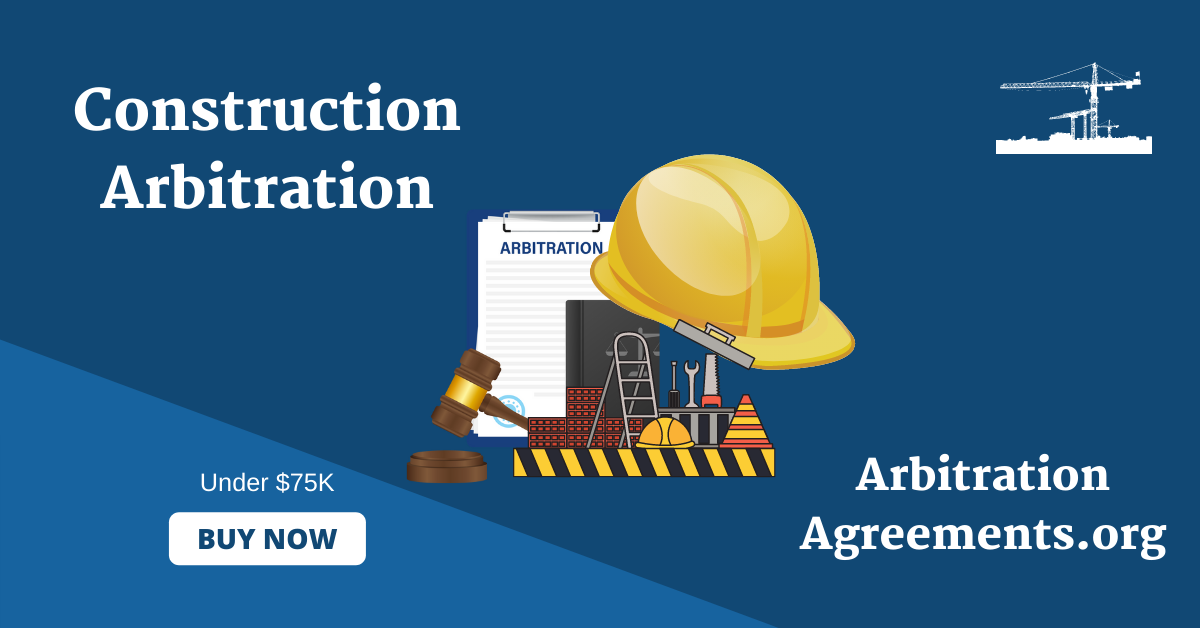Arbitration vs mediation vs litigation is a common debate amongst legal experts. It’s also a discussion that countless disputing parties have every day. The parties realize that they have options for resolving their disagreements. Each party can file a lawsuit in court. Or, the parties can agree to take part in the ADR process. ADR stands for “alternative dispute resolution.” The most popular methods of ADR are arbitration and mediation. Let’s now go over the basics of all three options for disputing parties. Visit also Arbitration Association.
The Basics of Arbitration
Arbitration functions as a private way to resolve almost any legal dispute. The two parties choose individuals to preside over hearings. These individuals function as the “arbitrators.” Any arbitrator must decide the matters of an issue. He or she must do so based on terms that the disputing parties agreed to.
Arbitration is the number one preferred method of resolving disputes.
Why? Because it’s almost always a lot cheaper and faster than court litigation. It’s also private because all information stays off public records. Arbitrating parties must keep in mind that arbitration decisions and awards are final. There are few instances in which a party can appeal a decision or award. That’s because most arbitration agreements have binding status. This means that the final decision must get upheld by all US courts.
Private organizations like ours provide full-scale arbitration services, also check out Arbitration Provision .
Once mediation takes place for disputing parties, arbitration is often the next step. That’s because parties can fail to come to a resolution during mediation. Mediation is more like a non-binding settlement process to resolve a dispute.
Arbitration almost always functions as a voluntary process.
But there are instances in which arbitration serves as a legal requirement. Unlike mediation, litigation and arbitration both have binding status. In each case, evidence gets presented before either a judge or an arbitrator. The judge or arbitrator assesses the evidence and makes a final ruling. Arbitration’s favored by many professionals working in specialized industries. (Construction is a prime example.)
Why’s arbitration preferred?
Because parties can choose a panel of arbitrators who have relevant industry knowledge. (Like the construction industry.) This way, an arbitrator will understand the basics of a dispute. There are rare occasions where dispute resolution seems too complex for arbitration. That’s when disputing parties might opt for litigation.
The Basics of Mediation
Mediation helps to disputing parties resolve disputes in a confidential and informal manner. A neutral third party, the “mediator,” oversees each dispute. Each mediator has the training to assist parties in discussing their differences.
Unlike an arbitrator, a mediator never provides an opinion on who is wrong or right.
In fact, a mediator does not even enforce a final decision to resolve the conflict. Instead, a mediator assists parties in working out their unique solutions to problems. Say that the parties cannot resolve the dispute through mediation. The parties can then move on to either arbitration or litigation. Also read about Binding Arbitration Definition
Selecting a neutral mediator is very important.
Why? It prevents bias for one of the disputing parties from taking place. Many times, an issue can get resolved through the mediation process. That’s the case with many corporate disputes. Companies will go the extra mile to maintain a first-rate reputation. Say that a company fails to agree on a compromise or deal. The defendants then risk damaging their business reputation. As a result, they could lose customers. Read about Interest Arbitration
The Basics of Litigation
Litigation focuses on either state or federal formal court processes. How does a dispute go to federal court instead of state court? That depends on the asserted claims and the money at stake. (The place where the parties live or work is also another factor.)
Through litigation, parties can resolve a dispute by adhering to specific jurisdiction rules.
The procedures in court that govern litigation are very, very formalized. All litigation cases get presented to a judge and/or jury. Think of the court dispute resolution process that you often see in movies. That’s the type of dispute resolution process that litigation provides.
Many people try to avoid litigation.
That’s because it’s often both time-consuming and expensive. Check out the difference between Arbitration vs Litigation Some complex and severe dispute resolution cases work well in litigation. That’s because a judge and jury will decide the final outcome.
A plaintiff (or business owner) has the legal responsibility to prove that the case is valid.
Here is an example. Say that you paid for construction work to remodel your office. But the construction job’s left incomplete while you're having to pay a full price. In this case, you must supply evidence to support the claims. Sure, arbitration and litigation cases are somewhat like one another. But there is one crucial difference.
You can appeal the outcome of a litigation case.
Whereas, you cannot appeal an arbitration outcome. That’s because arbitrated outcomes almost always have legal binding status. Also visit Arbitral Tribunal

What Is the Main Difference Between Arbitration and Mediation?
Arbitration functions more like a court process than mediation does. That’s because arbitrating parties will provide evidence and testimony. Both of these actions are very much like a court trial; yet, they're less formal. Mediation focuses on the process of negotiation. Negotiations get assisted by a neutral third party: the mediator. Parties in mediation never reach a resolution until all sides agree on one.
What Is the Difference Between Arbitration and Litigation?
The key difference between arbitration and litigation focuses on the US court system. A court always gets involved with every single case in litigation. This applies to any lawsuit. But through arbitration, a legal settlement between parties takes place outside of court. The arbitration process is also a lot faster than when parties are litigating. The average arbitration hearing process lasts only a week or two. Meanwhile, lawsuits and litigated disputes can drag on for years.
Is Arbitration Better Than Litigation?
Many legal experts do consider arbitration a “better” process than litigation. This comes down to the key benefits that arbitration provides. As mentioned above, arbitration proceedings conclude a lot faster than litigation cases. That’s one big reason why arbitration is almost always a lot cheaper than court litigation. The arbitration process is also less complicated. This leads to arbitrators deciding binding resolutions with relative ease. Read here Forced Arbitration
What Are the 5 Steps of Mediation?
There are five general steps that contribute to the average successful mediation process. First, there is an introduction where parties begin communications with the mediator. Then, a statement of the problem takes place. That’s when the parties let the mediator know the exact terms of the dispute. Next, information gathering takes place. The mediator compiles key information to find ways to settle the disagreement. It’s now time for the bargaining phase. The mediator tries to get the parties to discover a win-win resolution. The last step of mediation is the settlement. The mediator proposes a resolution. But it’s up to both parties to either accept or reject the settlement. If one party rejects the settlement, then there is no legal resolution. Click Pre Dispute Arbitration Clause
Mediation vs Arbitration: The Key Differences
Sure, mediation and arbitration are popular outlets in the legal ADR process. But the two terms hold quite a few key differences.
Mediation always functions as a non-binding process.
A single mediator will facilitate discussions and suggest ideas to resolve the dispute. Through this definition, a mediator is nothing like a judge in court litigation. That’s because a mediator cannot impose a legal decision. What is Federal Arbitration Act ?
Arbitration almost always functions as a binding process.
In fact, it often serves to replace the full court trial process. The standard is for a panel of three arbitrators to function like judges in a courtroom. Arbitration panelists make decisions related to evidence and provide written opinions. Most of the time, those decisions and legal opinions hold binding status. The decision can get decided by a majority vote of the arbitrators. Mediation and arbitration both function as alternatives to standard court litigation. But sometimes they get used in conjunction with the litigation process. Say that opposing parties attempt to negotiate. If negotiations fail, a dispute can move to a court trial. Read here Mandatory Arbitration
Do You Want To Learn More About Arbitration vs Mediation vs Litigation? Contact Us Today
If you want to find out more about arbitration vs mediation vs litigation, you're in the right spot. Our ADR and legal experts are standing by to answer your questions. They can provide specific examples about how litigation, mediation, and arbitration function. All you've got to do is give us a call. Or, you can message us on our website or send us an email. You're also welcome to check out more ADR articles on our website. We have dozens and dozens of pieces about how to resolve legal disputes. Our experts look forward to serving as your number one resource for arbitration. Must read Mandatory Arbitration Provision










